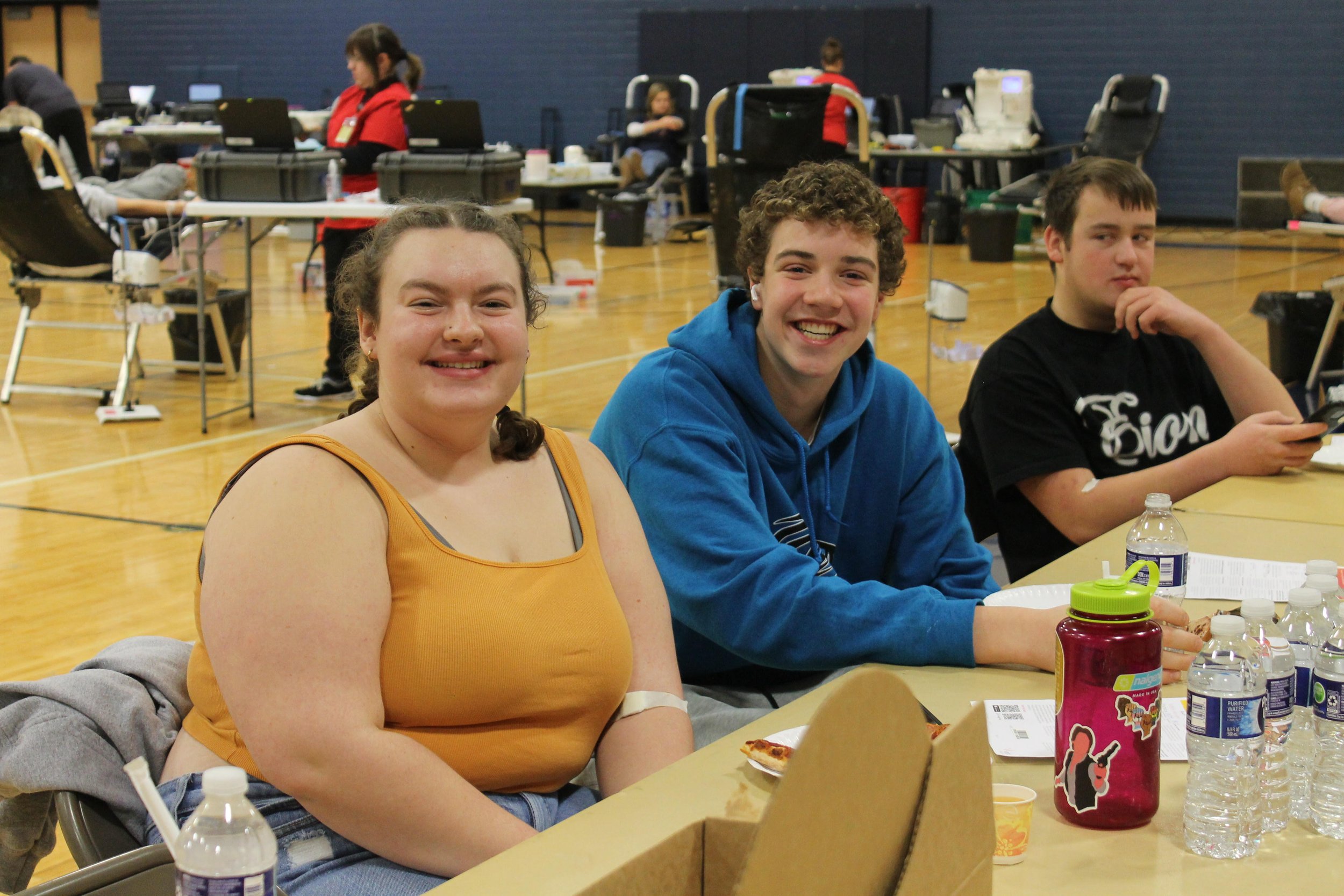
The number of US blood donors has hit an all-time low in the past 20 years. The American Red Cross declared for a national blood shortage on September 11, citing a critically low blood supply level that dropped nearly 25% since early August.
Without an abundance of blood donors, millions can suffer. Every two seconds someone in the U.S. needs blood and or platelets. Blood shortages can lead to delayed or canceled surgeries, limited availability of blood for patients with certain medical conditions, and emotional distress for the patient. Not only do blood shortages impact the patients in need of blood, but it can also impact blood banks, as an increased amount of pressure to get blood is looming over them.
The process of giving blood, as a high schooler, is not as difficult as one may think. The school and teachers partner with Versiti, a blood center, and holds three blood drives a year. Student council advisor, Lauren Wedge, is in charge of running the blood drive and urges students to give blood. She believes it is an easy process to donate. “After you check in you have to answer some prescreening questions and then they check your blood pressure and do a finger poke to make sure your iron levels are good. From there you have a pre snack (pretzels/chips and a water) and then you give a pint. The actual donation usually doesn't take that long. After that, you sit for 15 minutes in our "canteena area" to make sure you are feeling well before returning to class. While you are there, we have snacks, food and drinks to help you replenish,” said Wedge.
Not only doe this help save up to three lives, but there are also some incentives for people who are willing to try and donate blood at the school. “If you give 6+ times in your high school career you can earn your red donor for life cord to wear at graduation. For student council - we host three drives a year and have goals to meet with those drives. If we meet those goals, we also get scholarship funds from Versiti,” said Wedge. Not to mention the free food and skipping class incentives.
By donating blood, it allows for one to give back to their community. Donating blood is a selfless act that will save lives.
High school promotes blood drive to combat blood shortage
Olivia Bussa
